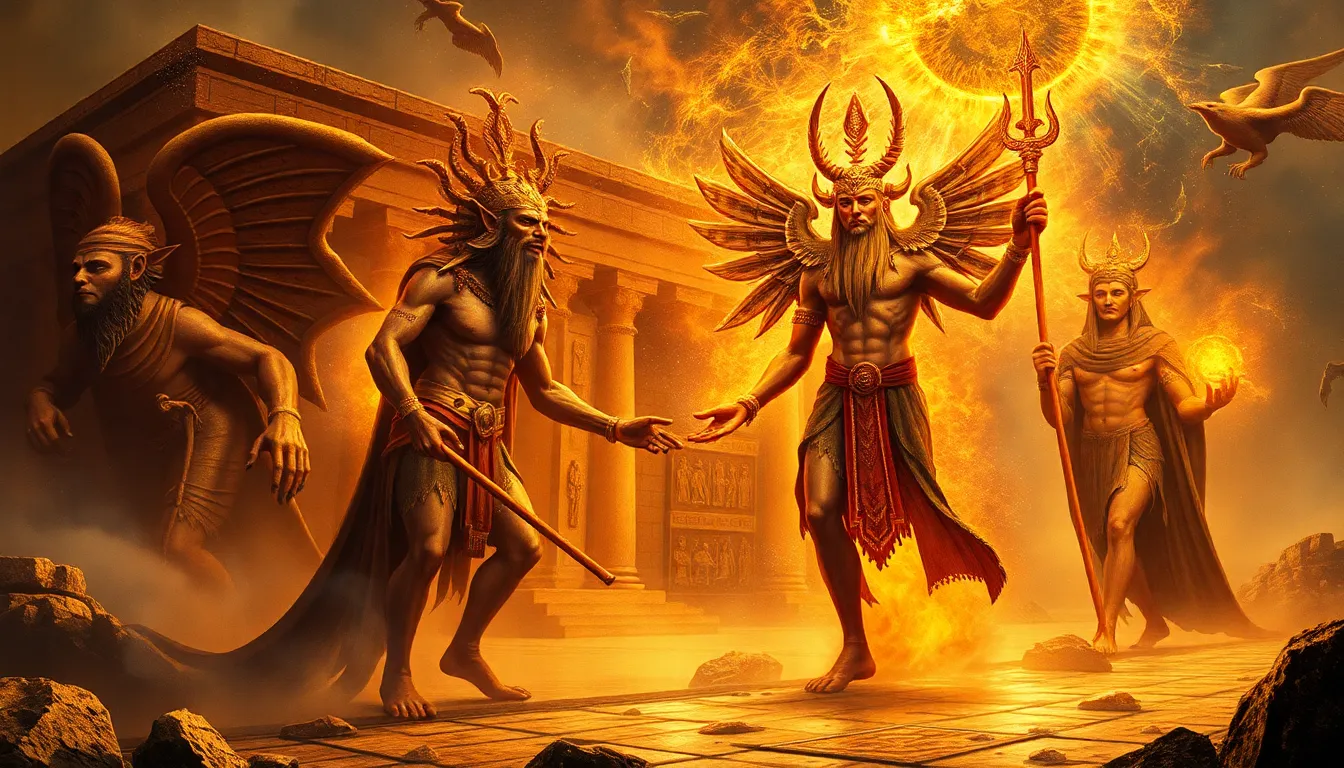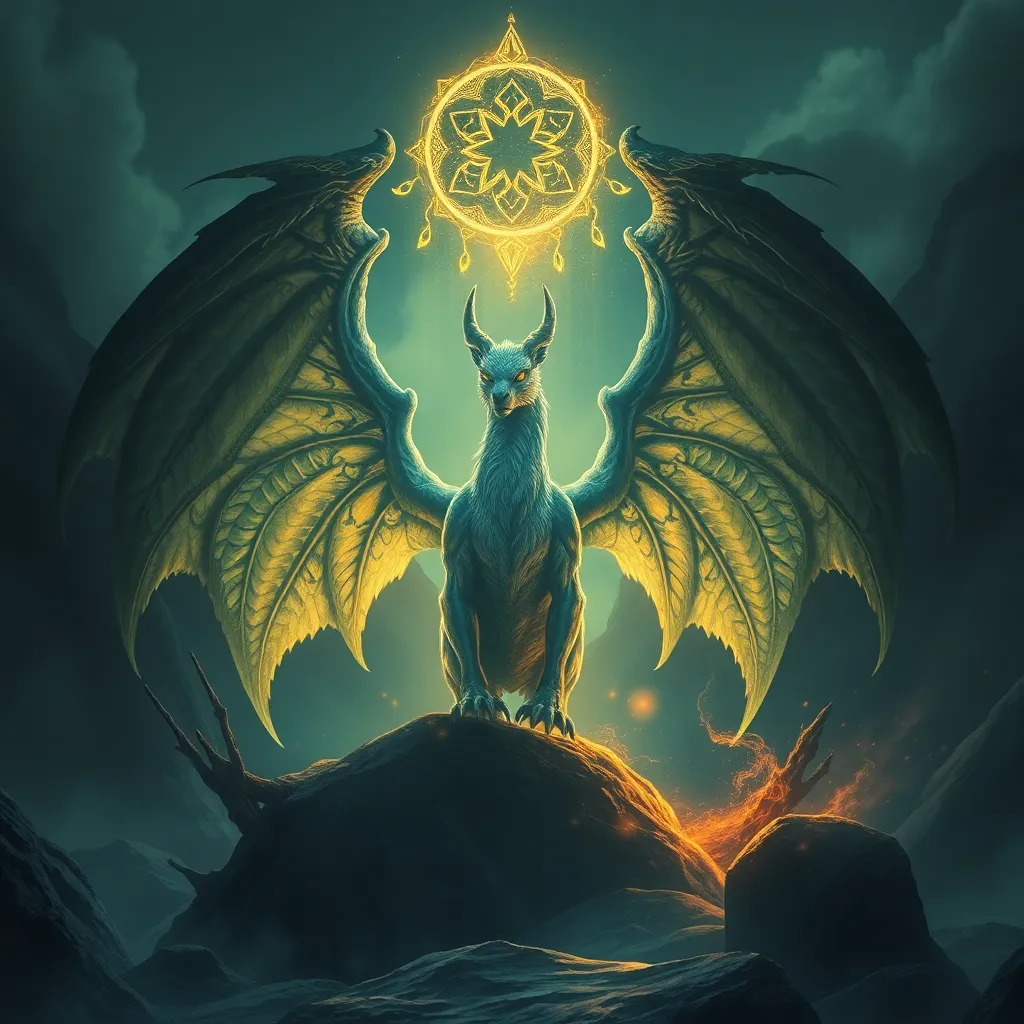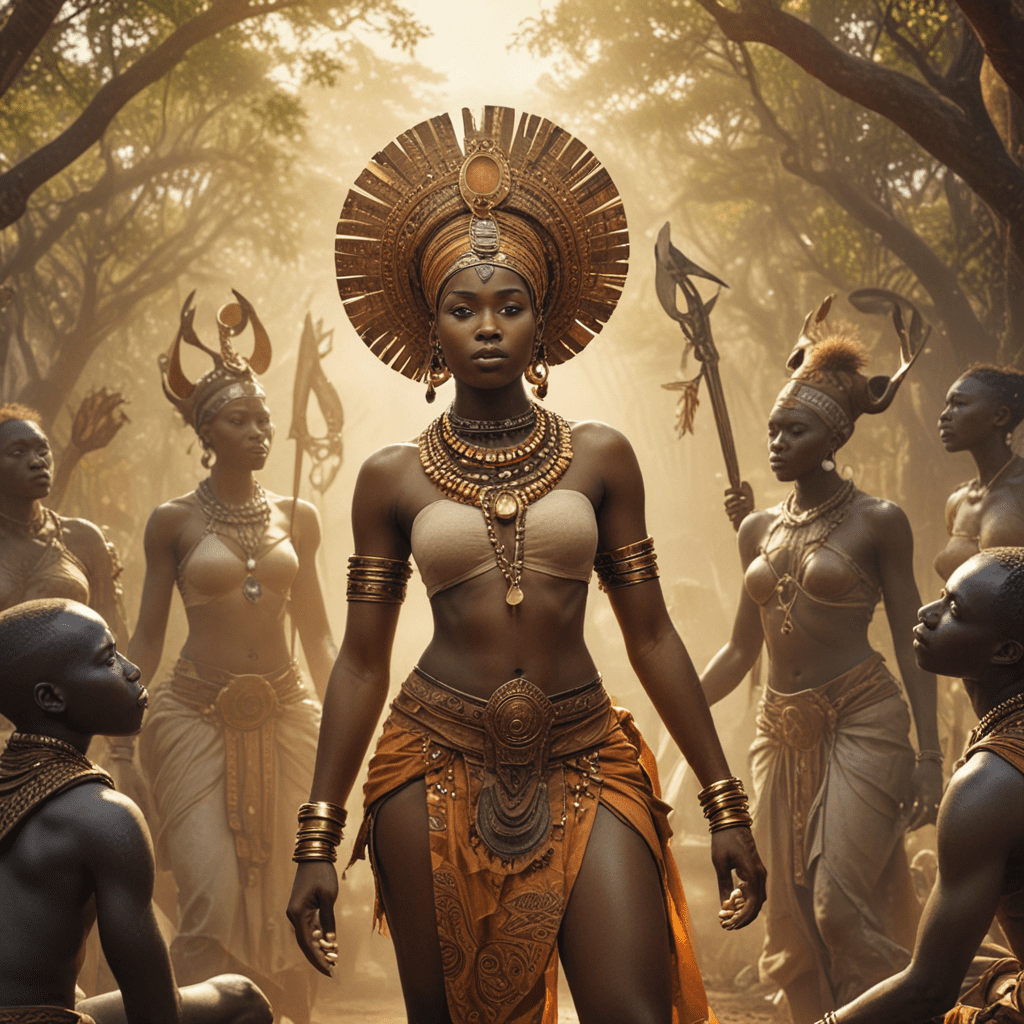Ancient Deities and Their Impact on Ancient Civilizations
I. Introduction
Deities in ancient cultures serve as powerful symbols of the beliefs and values that shaped their societies. These divine figures were often revered in various forms, embodying the forces of nature, human virtues, and societal ideals. Religion played a crucial role in ancient civilizations, influencing everything from governance to daily life. This article will explore the profound impact of deities on ancient societies, examining their roles, characteristics, and legacies.
II. The Role of Deities in Ancient Societies
To understand the significance of deities, we first need to differentiate between polytheism and monotheism. Polytheistic cultures, such as those in ancient Greece and Egypt, worshipped multiple gods, each governing different aspects of life and nature. In contrast, monotheistic societies, such as early Judaism, centered their beliefs around a single deity.
The functions of deities in ancient societies were multifaceted:
- Social Order and Governance: Deities often legitimized rulers and their authority, linking political power with divine favor.
- Cultural Identity: Deities served as symbols of cultural identity, uniting people under shared beliefs and practices.
III. Creation Myths and Their Societal Implications
Creation myths are foundational narratives that explain the origins of the world and humanity. Prominent examples include:
- Mesopotamian Myth: The Enuma Elish describes how the god Marduk created the world from the body of the chaos monster Tiamat.
- Egyptian Myth: In the Heliopolitan creation myth, Atum created himself from the chaotic waters of Nun.
- Greek Myth: Theogony by Hesiod outlines the genealogy of the gods and the creation of the universe from Chaos.
These myths shaped societal values by establishing moral frameworks and explaining natural phenomena, such as the changing seasons or the cycle of life and death. They provided a sense of order and understanding in a world that was often unpredictable.
IV. Deities and Agriculture: The Lifeblood of Civilizations
Agriculture was fundamental to the survival and growth of ancient civilizations, and thus, agricultural deities were highly revered. Notable agricultural deities include:
- Demeter: The Greek goddess of the harvest, symbolizing fertility and the cycle of growth.
- Osiris: In Egyptian mythology, Osiris was associated with agriculture, resurrection, and fertility.
Rituals and festivals celebrating harvests and fertility were commonplace, fostering community unity and ensuring divine favor for bountiful crops. The relationship between agricultural success and societal stability was evident; a poor harvest could lead to famine, unrest, and the collapse of social order.
V. Warfare and Deities: Divine Support in Conflict
Warfare was an integral part of many ancient civilizations, and deities played a significant role in these conflicts. War deities such as:
- Ares: The Greek god of war, representing the chaos of battle.
- Mars: The Roman counterpart of Ares, symbolizing military power and protection.
- Sekhmet: The Egyptian goddess of war, known for her fierce and protective nature.
Religion was often used to justify wars and conquests, framing them as a means to fulfill divine will. Military success was frequently attributed to divine favor, and victorious leaders would often construct temples or monuments to honor their patron deities, reinforcing cultural narratives of divine support in warfare.
VI. Deities and Morality: Establishing Ethical Frameworks
Deities significantly influenced moral codes and societal laws. Divine beings were often seen as arbiters of right and wrong, guiding human behavior through ethical teachings. Examples of ethical teachings from various pantheons include:
- The Ten Commandments: Central to Judeo-Christian morality, believed to have been given by God to Moses.
- The Code of Hammurabi: A Babylonian law code that was said to have been divinely inspired by the god Shamash.
The concepts of divine punishment and reward served to maintain social order, as people believed that their actions were observed by the deities, leading to consequences in this life or the next.
VII. Artistic Expression and Deities: Reflection of Beliefs
The representation of deities in ancient art and architecture provides valuable insights into the beliefs and values of these civilizations. Artworks ranged from grand sculptures and temples to pottery and murals, often depicting gods in various forms and narratives.
Furthermore, deities influenced literature, music, and performance, creating a rich tapestry of cultural expression. Artistic creations served to reinforce religious beliefs, educating the populace about their deities and instilling a sense of reverence.
VIII. The Decline of Deities: Factors Leading to Change
As civilizations evolved, several factors contributed to the decline of traditional deities:
- The Rise of Monotheism: The emergence of monotheistic religions often led to the marginalization of polytheistic beliefs.
- Cultural Exchange and Syncretism: Contact between different cultures led to the blending of beliefs, sometimes diluting the original concepts of deities.
- Philosophy and Science: The advancement of philosophical thought and scientific understanding began to challenge the need for divine explanations of the world.
IX. Modern Legacy of Ancient Deities
Despite the decline of their worship, the influence of ancient deities continues to resonate in modern culture. Their stories and characteristics have been integrated into contemporary religions and popular culture, inspiring literature, art, and film.
Many modern religions still reflect ancient beliefs, and the archetypes of these deities can be seen in various forms of storytelling and character development. The legacy of ancient deities serves as a reminder of humanity’s enduring quest for understanding and meaning in the face of life’s mysteries.
In conclusion, ancient deities were not merely figures of worship; they were integral to the very fabric of ancient civilizations. Their impact on society, culture, and morality shaped the world in profound ways, leaving a legacy that continues to influence us today.




